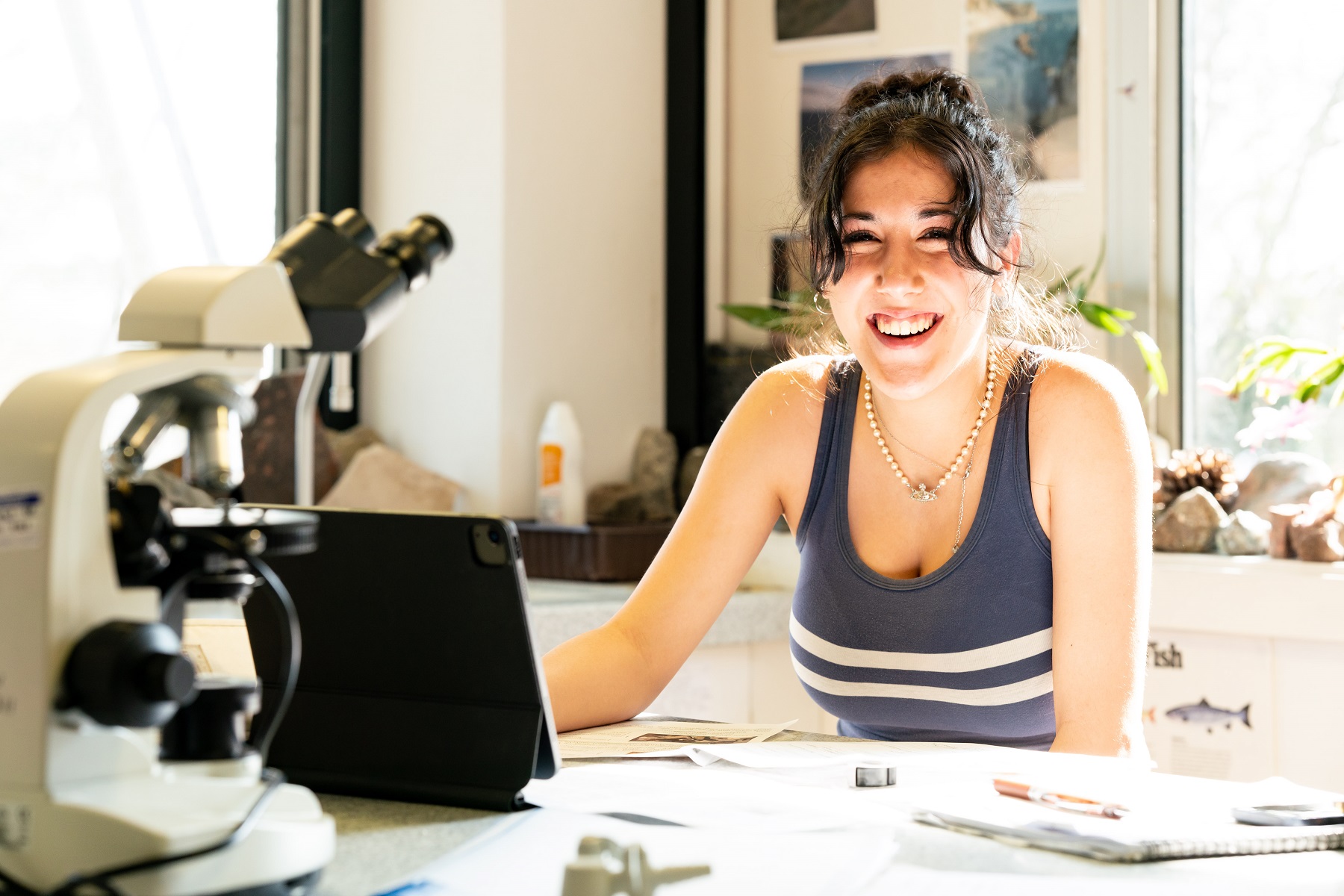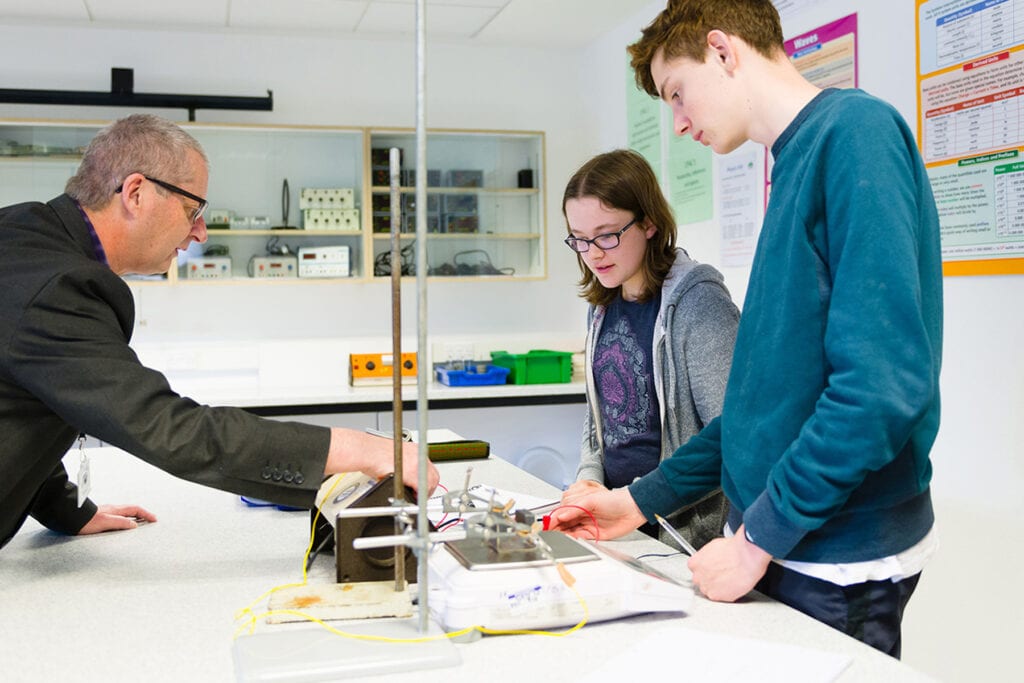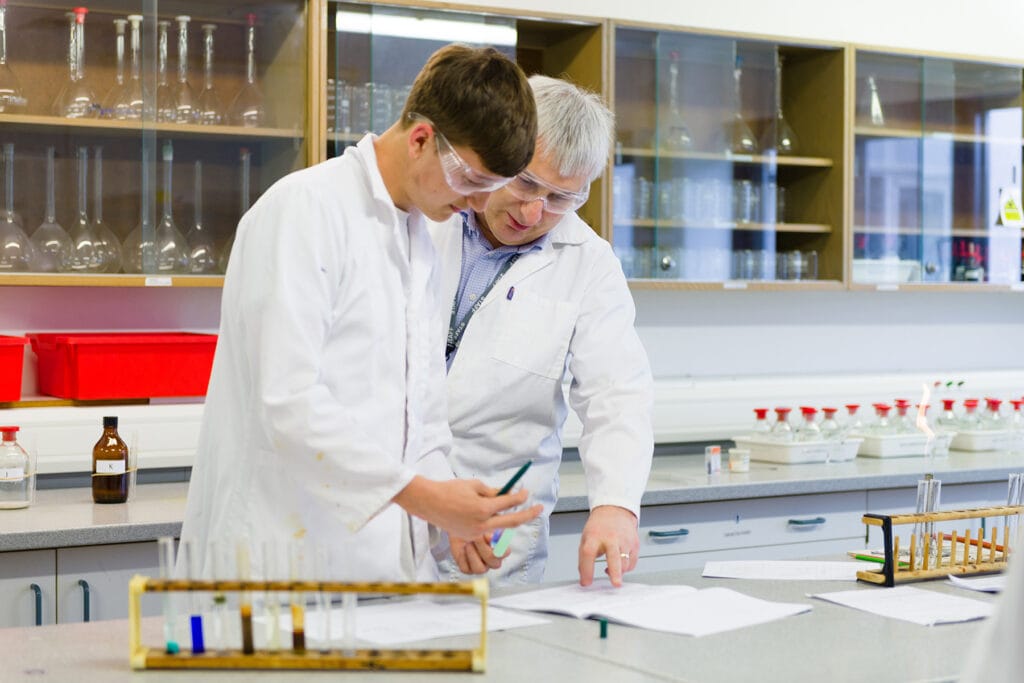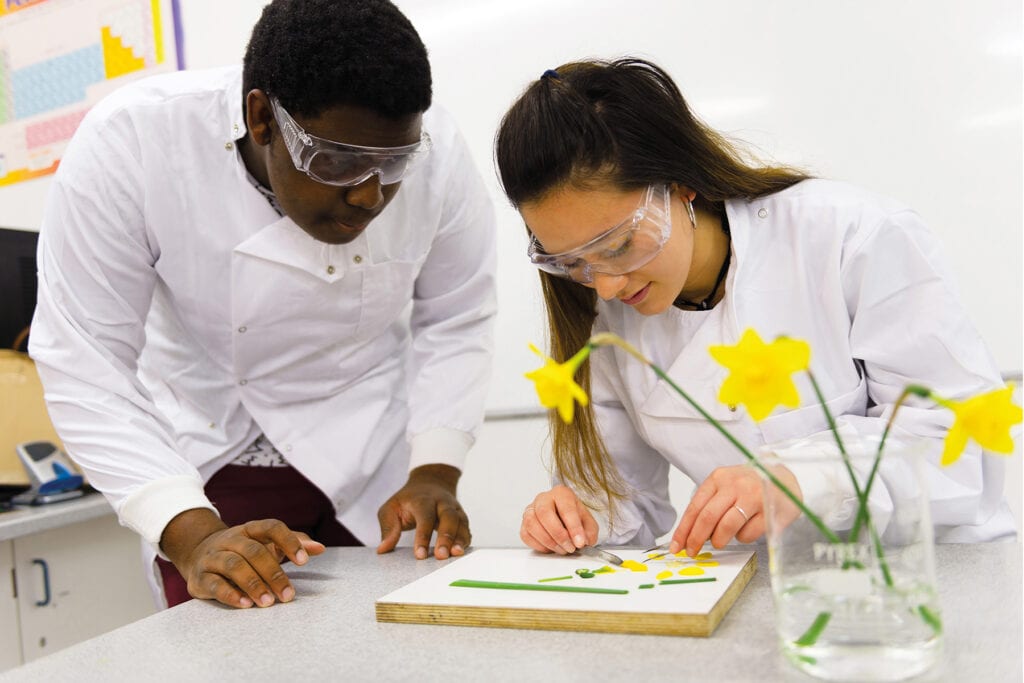New students starting in September: You can find more information about Induction days and submitting your GCSE results in our Start of Year Guide.
why choose this course?
This course provides an excellent insight into how our world works and the importance of these processes in maintaining life on Earth. In a time when climate change is one of the biggest threats to humankind, this course will provide you with all the information you could need on the threats the world is facing and how we can reduce them. As an environmental scientist, you will develop key transferable skills such as lab work, field work and critical thinking that can open up many doors in the future, no matter your chosen progression route. As the world leaders continue to implement change, we will need more environmental scientists to help guide them and make a real difference.
Apply for this course
Start date: 08/09/2025
TOP COURSE HIGHLIGHTS
excellent tutor support
exceptional facilities
field trips
develop practical skills
great for progression

Friendly and passionate staff
Your lecturers are extremely passionate about the subject and will want to share that passion with you to help you succeed and reach your potential.
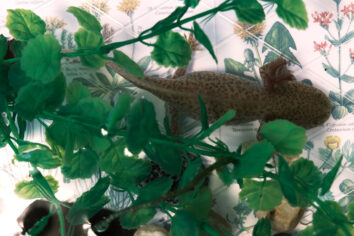
Practical activities
You will receive your own lab booklet with a wide range of different practical activities designed to consolidate your understanding of subject content and teach you key skills you will need for exams.
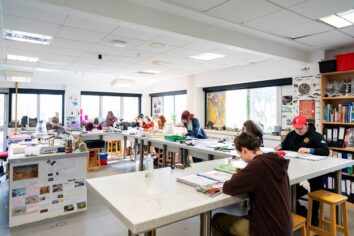
Range of teaching styles
As well as theory lessons, some sessions will be practical based, and some will be out in the field collecting data. All lessons are designed to improve your understanding of the subject content and give you a more holistic view of why it is important.
WHAT WILL I LEARN?
In the first year of your studies:
The Living Environment: Conditions for life on Earth and how the presence of life on Earth bought about change. Methods of conservation, planning and monitoring as well as habitat conservation including the study of vulnerable biomes. How humans influence biodiversity in terms of destructive effects including the methods of protecting biodiversity.
The Physical Environment: You will study the main components that make up the physical world and provide the conditions that enable life to survive here. The topics include: the atmosphere, hydrosphere, soils, biogeochemical cycles and lithosphere.
Research methods and scientific methodologies: Investigative methods in environmental science, how to sample habitats, using and recording quantitative and comparative data, measuring abiotic and biotic factors in various ecosystems. Field work studies of population density, species frequency, biodiversity and soil analysis. Understanding of new techniques such as radio tracking, tagging and ringing of mobile populations. Use of satellite data and DNA as well as monitoring of indirect evidence such as owl pellets, nests, droppings tracks and trails.
The Physical Environment: Here you will study the atmosphere, how it works and how we monitor it. Including its dynamic nature, carbon footprints and ozone depletion. Water resources, how humans influence the water cycle and how we maintain sustainable supplies. Mineral resources, how they form, how we find them, and the issues associated with their extraction as well as how to protect the environment from the impact of extraction. The carbon, phosphorous and nitrogen cycles, our influence on them and how we can exploit them sustainably. Soils, how they form, how we make them vulnerable and how we can protect them.
In your second year of study: We cover a range of real-world examples that enable us to apply what we learned in the first year to understand the impacts they have on the environment and what we can do to mitigate this. The examples include: energy resources, pollution, agriculture, fishing and forestry.
In the second year of your studies:
Energy resources: The importance of energy supply in the development of society, the impact of their features in their use. We study the sustainability of our current resources and the strategies to secure our future, using renewable and non-renewable resources. We will also look at new ways to conserve energy in the domestic and industrial setting.
Pollution: The properties of pollutants, how environmental factors affect the severity of pollution, and the strategies to control pollutants. We will study pollutants such as acid rain, NOx, hydrocarbons, pesticides, nutrients and heavy metals, noise and radiation, as well as many more.
Agriculture: methods of intensive and non-intensive farming including pest control, increases in yield and environmental impacts. Along with the social and political factors involved.
Fishing and aquaculture: Aquatic food production, fisheries and marine productivity. The impact of humans on fish populations and exploring the concept of maximum sustainable yield.
Forest resources: Exploring the relationship between productivity and biodiversity as well as the impacts exploitation is having on the environment and how this will affect future supplies.
Sustainability: This section looks at the dynamic nature of our Earth and how positive and negative feedback mechanisms effect the rate of change in our environment. Here we will look at Energy, material cycles and the circular economy.
Students undertaking A Level Environmental Science are expected to take part in the planned field trip / visits programme, this is an applied field science and as such cannot be taught solely in the classroom. The course has a strong emphasis on developing the students’ knowledge and understanding of field work, so it is very important that students take part fully in this side of the course. The skills gained in the field will be assessed as part of the written examinations and we have to show the exam board that you have experience in the field.
WHERE WILL IT TAKE ME?
An understanding of the environment is desirable for a variety of Higher Education courses and studying A Level Environmental Science can lead to a career in a field that is growing exponentially. Environmental Science covers such a broad range of topics that it can prepare you for a multitude of different career paths.
Some progression options include studying environmental science, biology, ecology, agriculture, geology, horticulture, soil science, wildlife conservation, countryside and environmental management, natural resource management, geography and sustainable development at degree level.
The UK government’s shortage occupation list currently includes Contaminated Land Specialist, Geoenvironmental Specialist, Landfill Engineer, Hydrogeologist, Nuclear Waste Management amongst others, this means employment prospects after university are excellent in various environmental science fields. This will only continue to increase as climate change and destruction of the environment continue to be a huge hazard to human health. Larger companies are also trying to incorporate sustainability into their business which will open up even more jobs on the market for someone with experience in environmental science.
ASSESSMENT ARRANGEMENTS
Your achievement in this subject is dependent upon excellent attendance, punctuality and effort. You will learn in a friendly atmosphere, using a variety of assessment methods:
You will be assessed through end of topic tests under timed conditions in class, regular homework questions and through completion of class activities and practical sessions. You will then be given detailed feedback on your progress.
You will review your own performance in 1:1 sessions with your tutor.
You will undertake mock examinations in advance of your final exams.
As with all A Levels the formal assessment is completed at the end of the two-year course. These exams will be presented as two, three hour written papers and will include information from both years.
ENTRY REQUIREMENTS
Minimum of 5 GCSEs Grade 4 or above, including at least GCSE Chemistry, Physics or Biology Grade 6 or GCSE Combined Science Grades 66, GCSE English Grade 6 or a Humanities subject Grade 6, and GCSE Maths Grade 5.
INFORMATION + SUPPORT
You will be expected to undertake 4-6 hours of independent study per week, this will include the set homework and your own revision. Throughout the two years, you will be able to access additional support through resources on the moodle page, dedicated revision workshops, tailored 1:1 provision and a variety of additional opportunities to stretch and challenge the most able students. We encourage you to proactively engage with the support available in order to reach your full potential.
Meet the staff, tour the campus and find out about life as a student at one of the best colleges in the country.
